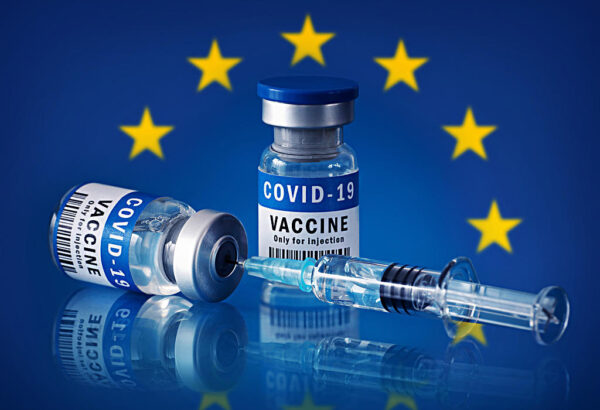
Drugo najviše pravosudno tijelo EU-a odlučilo je da Komisija EU-a nije bila dovoljno transparentna u vezi s poslovima cjepiva protiv Covida s farmaceutskim divovima kao što su Pfizer i AstraZeneca te da nije imala legitimnih razloga za skrivanje određenih detalja ugovora s njima.
Presuda Općeg suda Unije obuhvaća kupoprodajne ugovore koje je sklopila Europska komisija 2020. i 2021., na vrhuncu pandemije, i vrijedne “otprilike 2,7 milijardi eura”, navodi se u priopćenju suda objavljenom u srijedu.
2021. neki su zastupnici u Europskom parlamentu zatražili pristup dokumentima koji detaljno opisuju uvjete dogovora kako bi bili sigurni da je javni interes zaštićen i da članovi pregovaračkog tima EU-a nemaju osobni sukob interesa.
Bruxelles im je omogućio samo djelomičan pristup redigiranim dokumentima i odbio otkriti članove pregovaračkog tima. Komisija je tvrdila da je to neophodno radi zaštite komercijalnih interesa i procesa donošenja odluka. Zastupnici Europskog parlamenta potom su iznijeli pitanje sudu.
“Komisija nije javnosti omogućila dovoljno širok pristup kupoprodajnim ugovorima za cjepiva protiv COVID-19”, rekao je sud u svom priopćenju. “Komisija nije pokazala da bi širi pristup tim klauzulama zapravo potkopao komercijalne interese tih poduzeća.”
Sud je također presudio da „Komisija nije dovoljno uzela u obzir sve relevantne okolnosti kako bi ispravno odvagala sporne interese, povezane s nepostojanjem sukoba interesa i rizikom da pravo na privatnost dotičnih osoba moglo biti povrijeđeno.” Presudom su djelomično potvrđene dvije tužbe protiv Bruxellesa i poništene odluke Komisije o uskraćivanju podataka javnosti, uz obrazloženje da takve odluke “sadrže nepravilnosti”.
Bruxelles je promptno reagirao na presudu, koja je stigla samo dva dana prije glasovanja Europskog parlamenta o kandidaturi Ursule von der Leyen za drugi mandat na čelu Europske komisije. SMS poruke između nje i šefa Pfizera o jednom od ugovora ranije su bile jedna od točaka prijepora Komisije i europarlamentaraca. Zastupnici su tražili pristup njima, ali Bruxelles je tvrdio da ona nije zadržala poruke.
“Općenito, Povjerenstvo odobrava najširi mogući javni pristup dokumentima, u skladu s načelima otvorenosti i transparentnosti”, navodi se u priopćenju suda, dodajući da je “samo djelomično podržao pravni postupak u dvije točke” i “potvrdio da je Komisija imala pravo omogućiti samo djelomičan pristup.”
Bruxelles je također naveo da će “pažljivo proučiti” odluku i da “zadržava svoje pravne opcije”. Komisija EU još uvijek može uložiti žalbu na odluku Europskom sudu pravde – najvišem pravosudnom tijelu bloka.
Brussels Was Not Transparent Enough Regarding Deals with Pfizer, AstraZeneca, and Other Pharmaceutical Companies, According to Court Ruling
The EU’s second-highest judicial body has ruled that the EU Commission was not sufficiently transparent about the Covid vaccine deals with pharmaceutical giants such as Pfizer and AstraZeneca and had no legitimate reasons for hiding certain contract details with them.
The ruling by the General Court of the Union covers the purchase contracts concluded by the European Commission in 2020 and 2021, at the height of the pandemic, and worth “approximately 2.7 billion euros,” according to a court statement released on Wednesday.
In 2021, some members of the European Parliament requested access to documents detailing the terms of the agreements to ensure that the public interest was protected and that members of the EU’s negotiating team had no personal conflicts of interest.
Brussels granted them only partial access to redacted documents and refused to disclose the members of the negotiating team. The Commission claimed this was necessary to protect commercial interests and the decision-making process. The Members of the European Parliament then brought the matter to court.
“The Commission did not provide the public with sufficiently broad access to the purchase contracts for COVID-19 vaccines,” the court said in its statement. “The Commission has not demonstrated that wider access to these clauses would actually undermine the commercial interests of these companies.”
The court also ruled that “the Commission did not adequately consider all relevant circumstances to properly weigh the conflicting interests, related to the absence of conflicts of interest and the risk that the right to privacy of the persons concerned could be violated.” The ruling partially upheld two lawsuits against Brussels and annulled the Commission’s decisions to withhold data from the public, on the grounds that such decisions “contain irregularities.”
Brussels responded promptly to the ruling, which came just two days before the European Parliament’s vote on Ursula von der Leyen’s candidacy for a second term as President of the European Commission. Text messages between her and the head of Pfizer regarding one of the contracts had previously been a point of contention between the Commission and MEPs. The MEPs had requested access to these messages, but Brussels claimed she did not retain the messages.
“In general, the Commission grants the widest possible public access to documents, in accordance with the principles of openness and transparency,” the court’s statement said, adding that it “only partially supported the legal process on two points” and “confirmed that the Commission had the right to allow only partial access.”
Brussels also stated that it would “carefully study” the decision and that it “reserves its legal options.” The EU Commission can still appeal the decision to the European Court of Justice – the highest judicial body of the bloc.